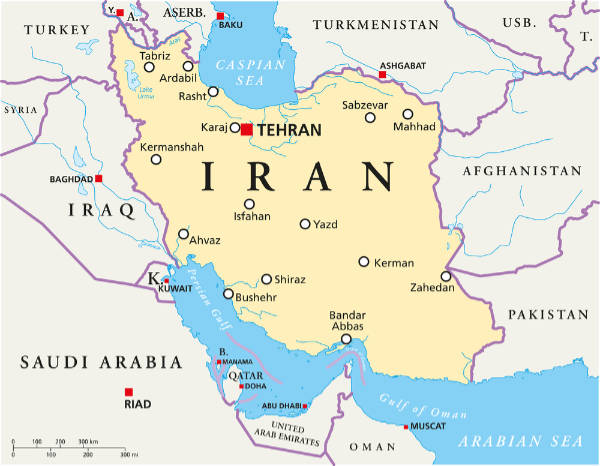Russian President Vladimir Putin met with his Iranian counterpart Masoud Pezeshkian in Ashgabat. Their first face-to-face meeting since Pezeshkian was elected President of Iran in July, although they had telephone conversations during this time. The talks come at a key time for Middle-Eastern relations, with Israel expanding its military aggression, Yemen attacking Western shipping in the Red Sea, and US sanctions on both Russia and Iran potentially affecting EU energy needs.
The Russian delegation to the talks also included Russian Presidential aide Yury Ushakov, Presidential press secretary Dmitry Peskov, Deputy Prime Minister Alexei Overchuk, and Deputy Foreign Minister Mikhail Galuzin.
Israel
According to Pezeshkian, the situation in the region has escalated dramatically because Israel doesn’t recognize “any international legal and humanitarian standards”, while “European countries and the United States don’t want relations between countries in the Middle East to develop peacefully” he stated, reasoning that the West has been involved in creating conflict to disrupt access to Middle Eastern energy reserves (we reference our recent Russia-Syria article here to illustrate this point) in order to slow progress by non-Western economies.
Iran and Israel have exchanged some recent missile attacks after Israeli attacks killed Iranian officials in Lebanon. The situation remains tense.
Energy
Should Iran’s position as concerns Israel worsen and the two sides engage in further military strikes, this could have serious repercussions for Europe’s energy needs, especially if shipping is cut off at the Straits of Hormuz. It provides the only sea passage from the Persian Gulf to the open ocean and is one of the world’s most strategically important bottlenecks. 30% of the world’s LNG and almost 25% of total global oil consumption passes through these Straits, which are partially controlled by Iran. This would create significant energy supply chain problems, especially for Europe. It would also place Russia as one of the key energy suppliers at a time when Europe has sanctioned both Iran and Russia and banned the use of their oil and gas products. The irony will not have been lost on Putin or Pezeshkian.
Russia has subsequently issued statements warning Israel not to attack Iran, saying that the consequences of doing so would be extremely dangerous. Tehran meanwhile has urged Gulf states to stay ‘neutral’ amid the tensions. Putin meanwhile stressed that “We are actively working together (with Tehran) on the international arena and our assessments of current events in the world are often very close.”
Western Reaction
The Western media reaction to Putin and Pezeshkian’s media has been somewhat downbeat. Most have expressed concern that the two are introducing a new ‘multilateral world order’ that is likely to replace Western hegemony. There has been some slow recognition that this may now occur, leading to some political analysis about dealing with energy supply chains being in the hands of Asian-focused economies and that a reset of political thinking towards countries such as Iran, China, and Russia may now be needed. Senior NATO officials have expressed the opinion that its ‘Founding Policy’ towards Russia ‘may now be outdated.’
Putin has said that Russia wants to create a “new world order” for Moscow’s allies to counter the West and stated that Moscow supported “the broadest possible international discussion” on the emerging multipolar world and was open to discussing it in various forums, including the Commonwealth of Independent States, the Eurasian Economic Union, the Shanghai Cooperation Organisation and BRICS.

Trade
Putin said that Russia-Iran trade is demonstrating good trends and growing. “We are observing trade growth this year. True, it has yet to compensate for the certain decline of last year, however, the overall trend is good.”
During the first quarter of this year, trade turnover between Russia and Iran grew by 48% over the same period in 2023, a year in which overall commerce between the two countries lagged due to sanctions restrictions. The two sides have begun trading in their respective currencies, and are aligning financial settlement networks to get around the suspension of their SWIFT accounts.
To maintain this growth, on June 12, Russia approved a Free Trade Agreement between Iran and the Eurasian Economic Union. Apart from new infrastructure such as the North-South International Transport Corridor, the FTA can save Russian exporters an estimated US$300 million in duties and other costs in accessing the Iranian market.
Current bilateral trade is dominated by the energy sector and weapons sales, however, the overall commercial trend is expanding into the automotive, construction, and agricultural industries. Expected 2024 trade volumes are anticipated to be about US$6 billion.
Iran and Russia are poised to sign off on a 20-year Strategic Partnership Agreement worth about US$200 billion, probably to be announced at the upcoming BRICS annual summit to be held in Kazan from October 22-24.
Further Reading
Russia – Iran Bilateral 2024 Relations: Update
Continue Reading





 Русский
Русский









